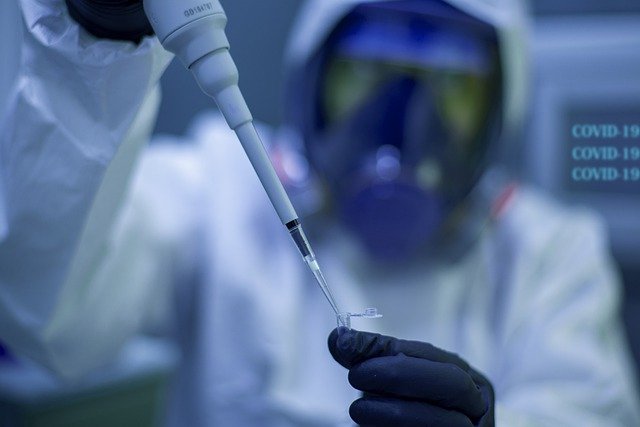Written by Adeel Abbas
One day when I was working in my lab I made a mistake that almost took my life off. See how I managed to escape the accident and why it happened.
I was working in an organic synthesis lab, where we synthesize complicated organic compounds from simple starting materials with the help of some catalysts. We use ammonia gas as a solvent for this reaction because its boiling point is very low, thus making it easy to evaporate.
One day, I was transferring some of the ammonia gas from one container to another using a pipette, when I accidentally dropped the pipette on the ground and some of the ammonia gas escaped. I quickly realized my mistake and ran out of the lab. If I had stayed in the lab for even a few more seconds, my life would have been finished by now.
The reason for this could be because the ammonia gas (which is a base) reacts with hydrochloric acid (which is an acid), forming ammonium chloride and water. The ammonium chloride formed has a similar structure to table salt and thus enters our eyes and causes serious damage. Fortunately, I was out of the lab in time and suffered no injury.
Hazards Associated with Chemistry Lab
Table of Contents
There are some other serious hazards that one must be aware of while working in a chemistry lab. These include:
1) Chemical burns: This can happen when a chemical comes into contact with our skin or eyes.
2) Explosion: This can happen if two or more chemicals are mixed together and the resulting reaction is violent.
3) Asphyxiation: This can happen if a poisonous gas is inhaled.
4) Fire: This can happen if a flammable liquid is ignited.
11 good laboratory practices for a chemistry student

So, in order to avoid such accidents, one must always follow some safety precautions while working in a chemistry lab. These include:
1: Wear proper safety equipment such as gloves, eyewear, mask
The first and foremost thing is to wear proper safety equipment such as gloves, eyewear, mask. These things protect you from chemical hazards.
2: Use good chemicals
Do not use substitutes or impure chemicals for your experiment. Try to use only pure chemicals. Because impure and substitute chemicals may affect the result of your experiment and can cause serious harm to you too.
3: Shake well
Always shake the container very well before using it because sometimes some particals settle down at bottom of the container which prevent pure product from coming out. So always shake it properly before using it!!
4: Take care of surroundings
Always clean up your work area after finishing your experiment. Clean all glassware used as well as weigh boats, spatulas etc. Wipe off all the bench with damp cloth. This will prevent accidents and also make your work area clean and safe.
5: Be careful with flammable materials
Many chemicals are highly flammable and therefore extra caution must be exercised while using them. Never use naked flames near flammable material and do not store them together.
6: Pay attention to warnings
Always read the Material Safety Data Sheet (MSDS) of the chemical you are working with. It contains all the necessary information about that particular chemical including its hazards, first-aid measures etc. So always read it carefully before starting your experiment.
7: Know your chemicals
Learn about the different properties of each chemical you are using. This will help you in using them safely and effectively.
8: Use proper ventilation
Always work in a well-ventilated area. This will prevent accumulation of toxic fumes and gases in the laboratory.
9: Take breaks
Always take breaks in between your experiments. This will help to avoid any accidents.
10: Be organized
Last but not the least, be always organized while working in the laboratory. Keep all your materials and chemicals within reach. This will prevent you from making any mistakes and also save time.
11: Always have a fire extinguisher nearby
This is the most important safety rule. In case of any emergency, always have a fire extinguisher nearby to put out the fire.
So these are some basic but very important laboratory practices that every chemistry student should follow. By following these simple guidelines, you can work safely in the laboratory and avoid any accidents. Stay safe !!!!!